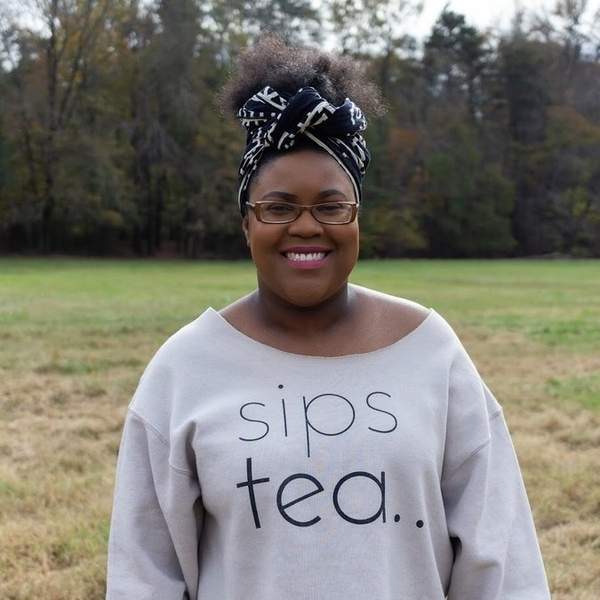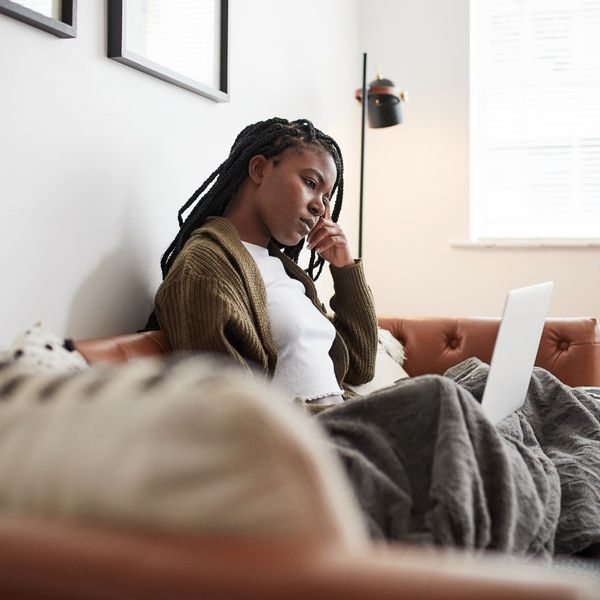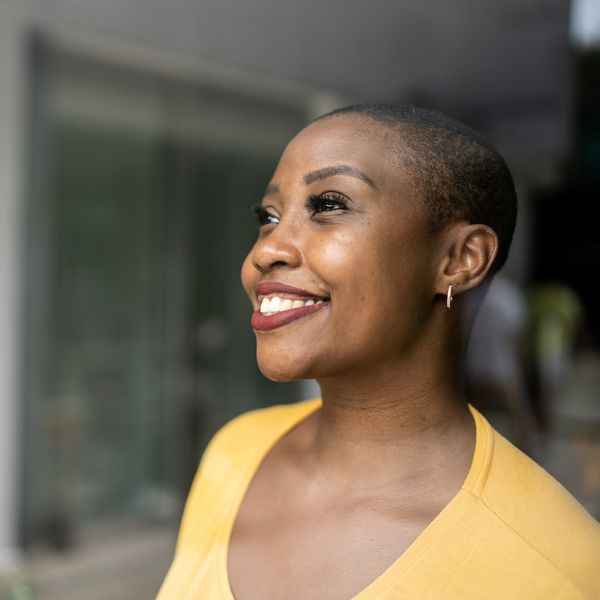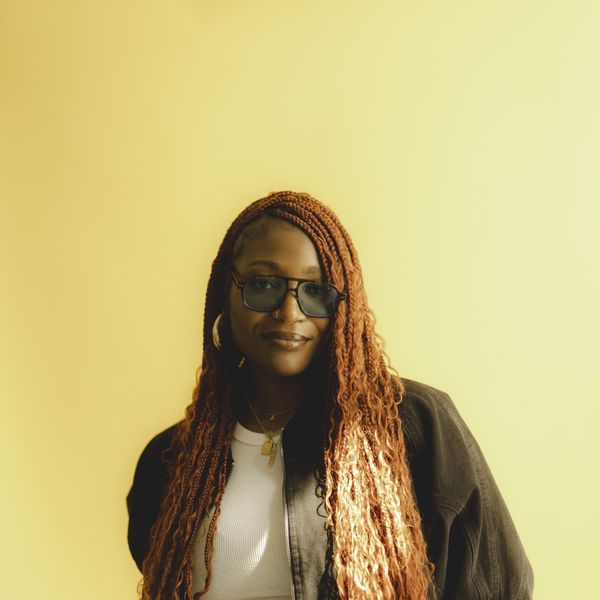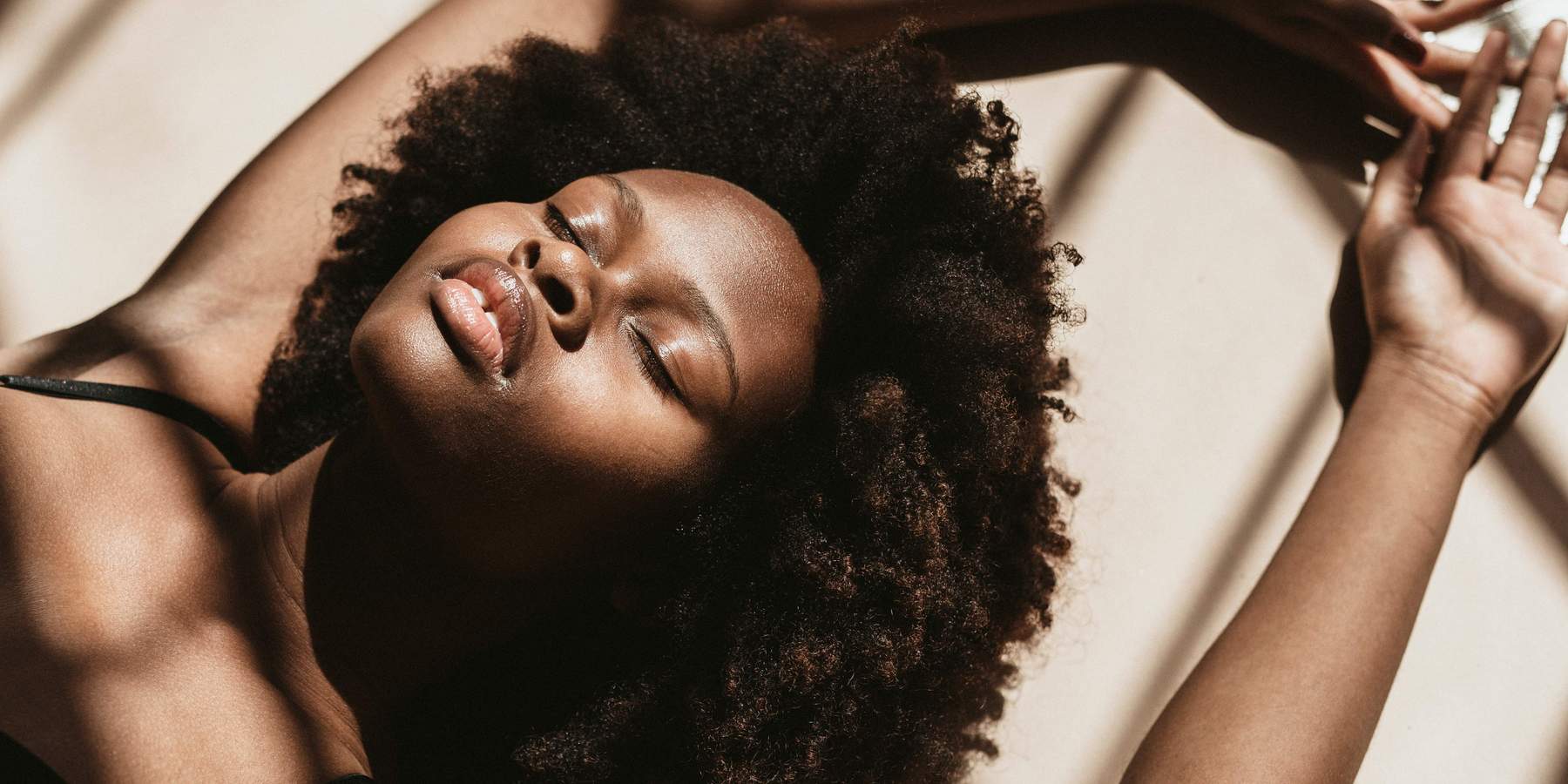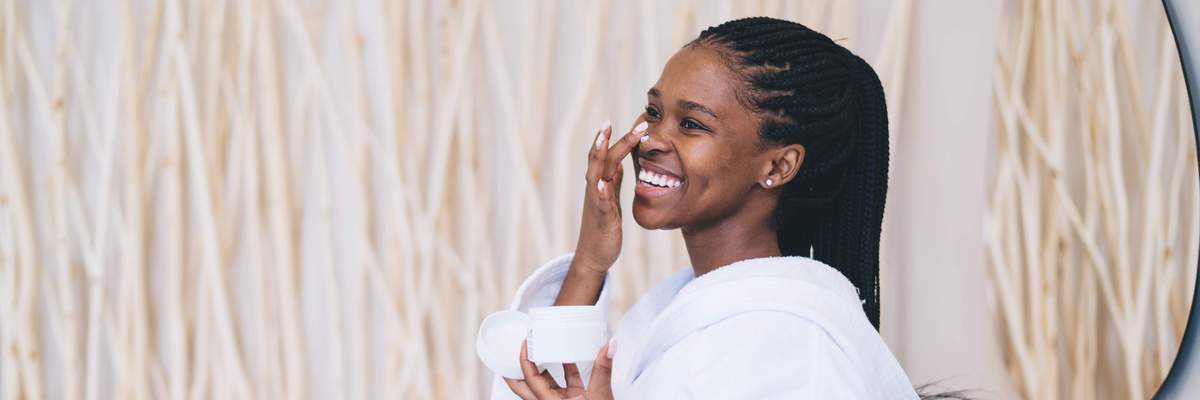What if you could combine all the things you love about hip-hop with a way to take better care of yourself? If that sounds like your cup of tea, then meet Shanae Jones the Hip-Hop Herbalist.
She is the founder of Ivy's Tea Company, a hip-hop influenced holistic health brand with a collection of handcrafted herbal teas and herb-infused sweeteners. Her products have taken a life of its own with catchy names like #TrapTea and equally clever descriptions that instantly reel customers in, but it's the delicious taste and sweet aroma that keeps them coming back for more.
This former executive assistant turned entrepreneur/herbalist shares her journey from working with a Quaker lobbying organization to creating safe spaces for black women and men in the holistic industry.
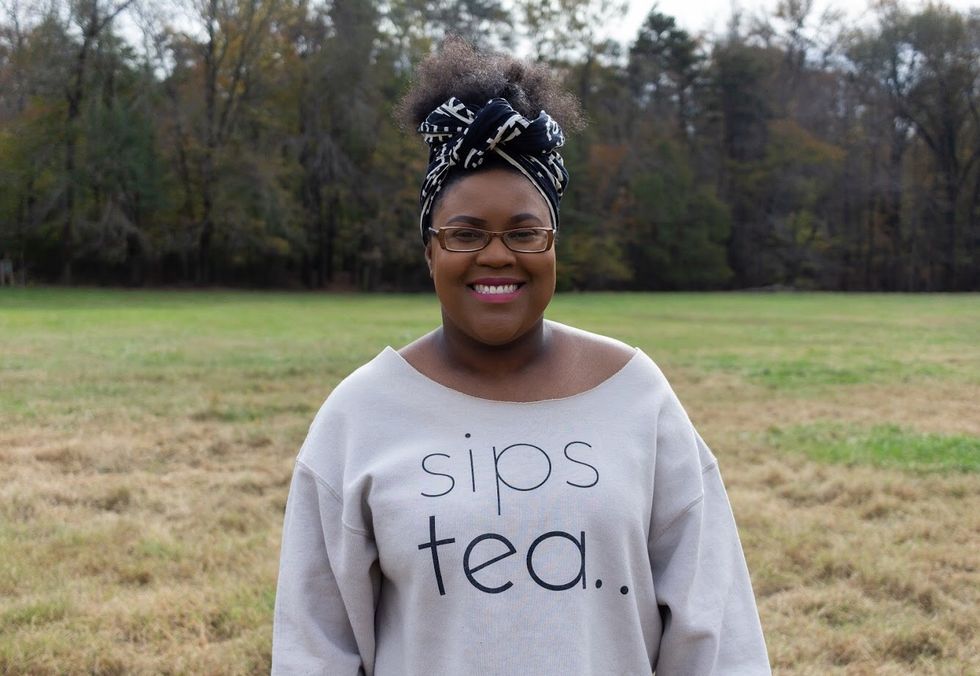
Courtesy of Shanae Jones
How did you come up with the title hip-hop herbalist?
It kind of came from other people. I'm happy too because I always wanted a nickname but I didn't get one (laughs). Now, I have one that I guess goes with my career, my passion. It just kinda came from the way I moved tea and I mixed it with herbs. [My] trap tea sort of took off on Twitter and this is just what it became, so that's how a lot of people [now] refer to me.
What was the concept behind hip-hop influenced herbal tea?
Well, I find that hip-hop is a great teaching tool and I see no reason why herbalism and herbal tea or any tea shouldn't be a part of that teaching. For me, it was quite simple; it was just very easy for me to see that connection between hip-hop and herbal tea. The common nature of hip-hop and also the common nature of herbalism and herbal tea. It's not considered highbrow medicine, and for a lot of people, hip-hop isn't considered this really incredible musical genre.
While I would disagree, there are parallels in that that also herbalism kinda deals with when it comes to conventional medicine. It was really easy for me to see the connection. I knew hip-hop, so [I] was like, I'm going to do something that I'm confident in and comfortable with and I can work with something I don't know much about.
I can make those parallels that people don't see. And I can bring it to people and make it plain for them to understand.
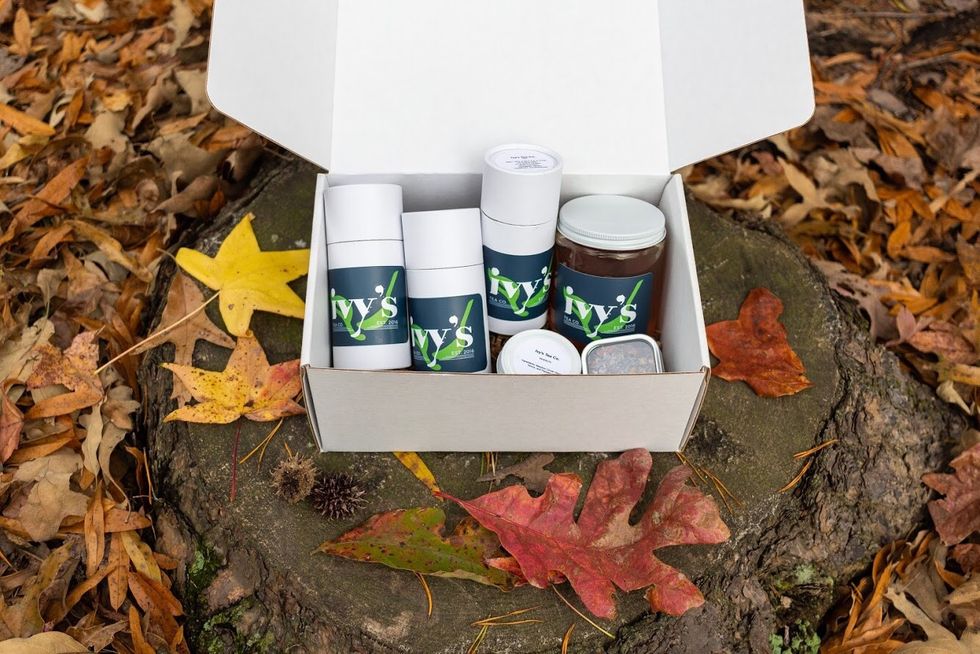
Courtesy of Shanae Jones
Why the name 'Ivy's Tea Co.'?
Naming a business is actually hard because you're like, 'I can't come up with anything!' But one day, it just rolled off the tongue.
I thought that I could name it after my grandmother. Her name was Ivy and she left Jamaica for a better life in London at a very early age. I think she was 16 or 17 years old. Ivy was kickass and very brave and I thought I should take that same energy and same spirit with me as I'm going on to do something very risky.
Being an entrepreneur is probably as risky as it gets and so I decided to name my company after her and it made sense and it sounded good. On the flipside, Ivy kinda smoked and she drank a lot. It probably wasn't the best idea to name a holistic health brand after her but her bravery was important to me and so I decided I would go with that.
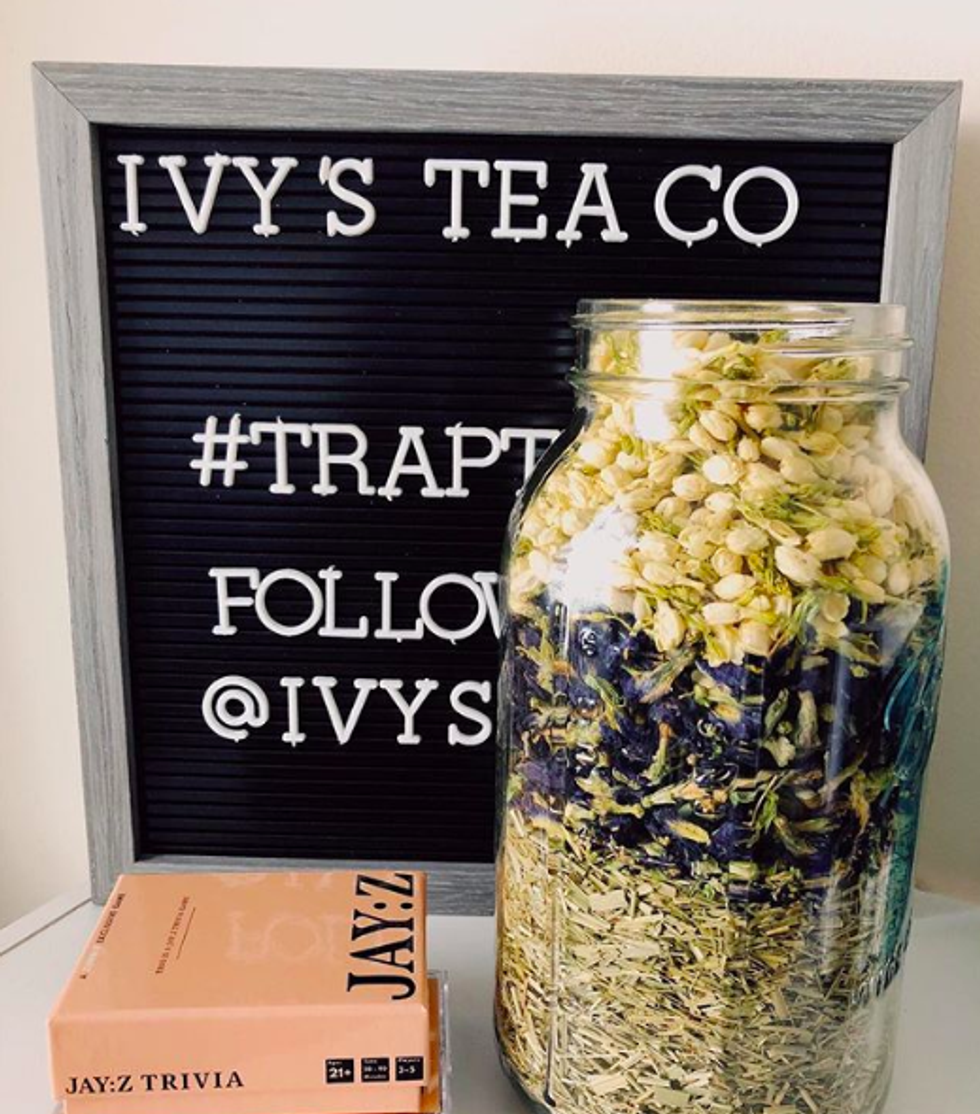
Courtesy of Instagram/ @ivysteaco
Do you believe your British-Jamaican heritage influenced you as an entrepreneur?
Sometimes I would like to say 'no,' but sometimes when I look back I could see, [for example] my family owned a Jamaican restaurant. When I was in middle school and high school, I would work there. I would leave school and take the bus to work with my mom and grandmother in the evenings. I saw my family working together and I saw the freedom of entrepreneurship but I think that's why when I think about it, it gave me a real glimpse of how hard it is.
My grandmother now, she doesn't clean chicken at all, you can't get her to touch a chicken because she cleaned so many while she was working at the restaurant. It showed me the grit and it showed me the staffing problems, delivery issues--how do you promote? How do you market? And this was at a time where there wasn't really [any] social media so it gave me a real insight on what it is to be an entrepreneur.
I learned not to quit and I learned that it's not as glamorous as people online would make it look, so I at least got to see that upfront.
I do drink a lot of tea and I always have ever since I was younger. That's how I bonded with my mother and grandmother, just over cups of tea. It's how I grew into womanhood, it's how I learned a lot about my family, that's how I learned about gossip and I learned about news and socio-political issues. I got to learn about my mother and grandmother over those cups of tea so I guess it was the one thing that introduced me to tea, but the tea I make now is so different than what we had and it's so different from what people tend to think of when they think of British tea.
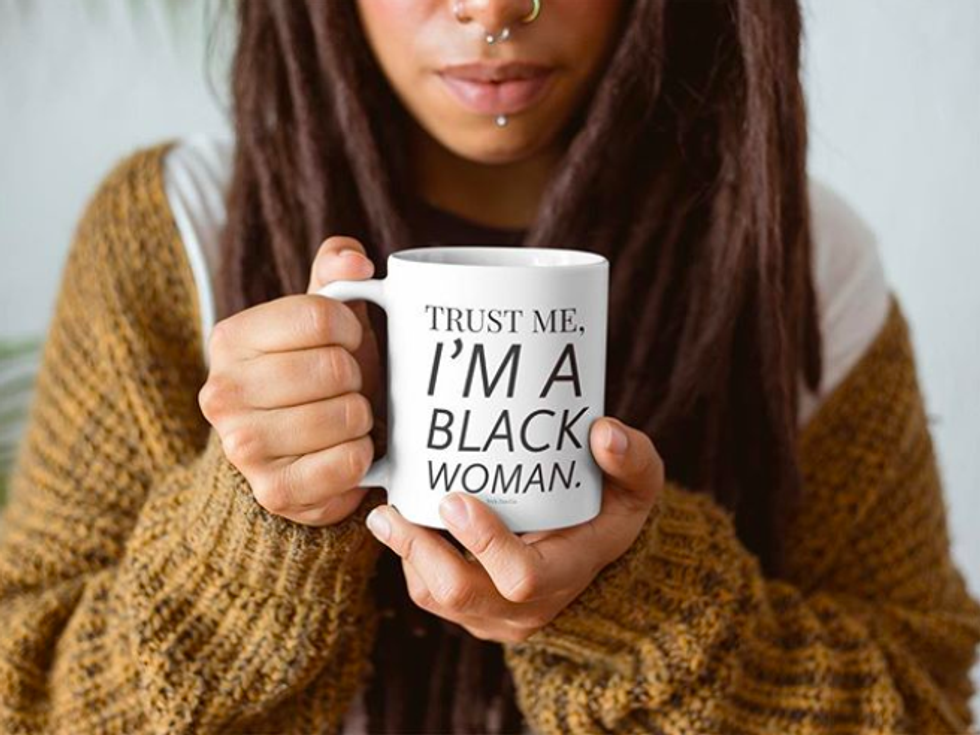
Courtesy of Instagram / @ivysteaco
Besides clever names like "PushaTea" and "What the Flu," what makes Ivy Tea Co. unique?
I'd say it's the mission behind the brand and that is to bring more black people into the holistic health industry and to change the scope of what holistic living is and what tea culture is.
The company is really all about shifting perspectives and subverting assumptions and in some ways, it is to offend people.
To get people to no longer take what they're used to and kinda flip it on its head and to say everything you think you know is wrong and I think that's really important as businesses grow and brands grow. There are lots of big trends we see about having a big face in front of the company and it's all about personality and how people buy into people and not brands per se but I feel that brands and businesses, in general, have the ability to shift American culture and the ability to create the America we want to see and mine is that I want to see a lot more inclusivity of black and brown people.
What are some obstacles you've encountered being a black woman in this space?
Well first off, a lot of people who drink tea don't think that hip-hop is necessary for it. They think that I should make it and make the brand, they would say, "more inclusive," but what they really mean is that they want to see less black people in the ad. They want the language to be a little "less black" but it's me.
When I make product descriptions online or I'm making a caption, it's my voice. I'm speaking the way that I speak on a regular basis not with any regard, it's not that I'm doing this intentionally, I'm just being my authentic self.
I also feel like the holistic health industry is full of wellness porn. Everybody's doing it, everybody's moaning, everybody is having a good time but they all got paid. It's not authentic, and I feel like I have to use my voice to kinda change that and of course, it's scary sometimes to be the first person over the hill, but I'm willing to do that.
I don't feel like I have much to lose, so I can take that chance but it is certainly a challenge. A lot of people don't want to see the brand the way that it is but I have proof of concept. I have customers who come back again and again. I have first time customers who come and are very appreciative of the fact that they can see themselves and hear themselves in the branding and that's enough for me to keep going because I know if I got them, then I can get one more and I can keep going and that's the point of the whole thing. I welcome the challenges. If it were too easy I think I probably would have quit by now.
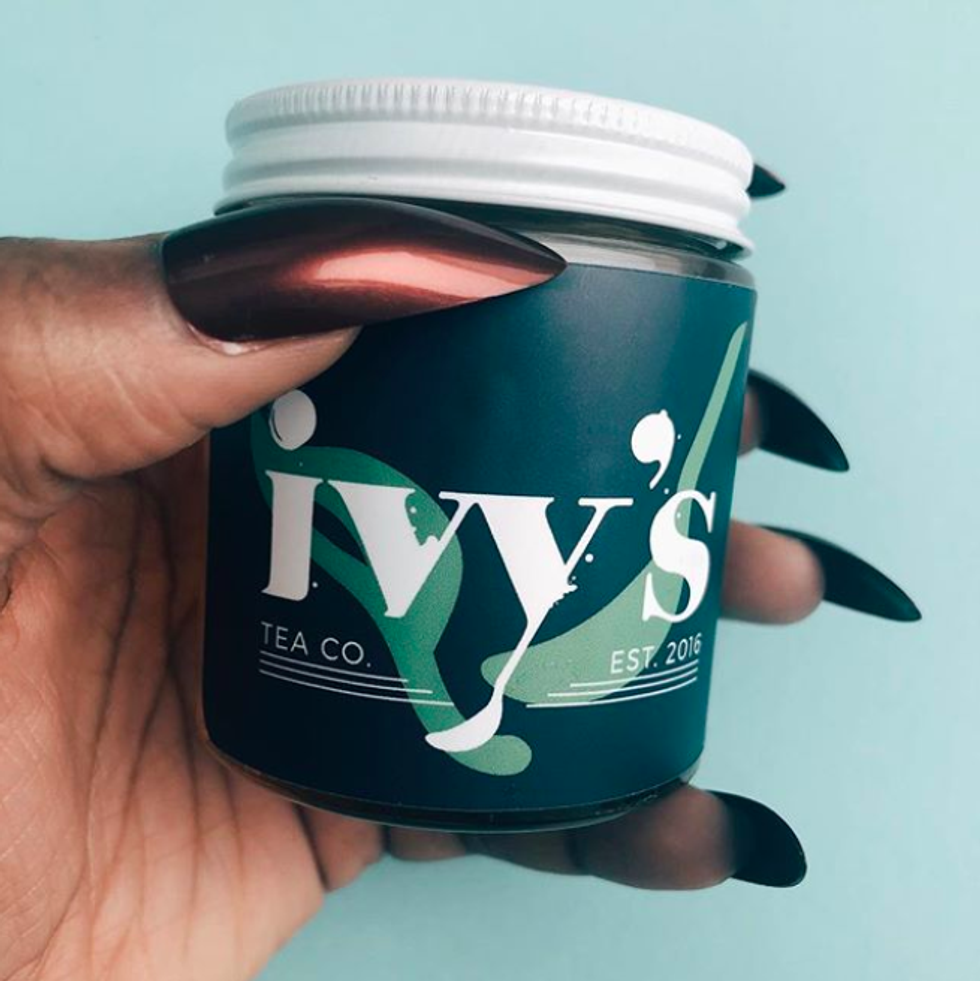
Courtesy of Instagram / @ivysteaco
We've seen a rise in holistic awareness especially in the black community, but there are still some misconceptions about holistic medicine. How does your herbal teas address that?
I try to step away from that. I don't feel that Ivy Tea Company is here to address any misconceptions. It's gonna be there no matter what but we are here to bring acceptance and inclusivity into the industry and to create a space with people who have questions about holistic health but don't look like or live like the typical wellness guru. I want those people to come to me and feel comfortable asking questions and I want them to feel invited to approach the industry.
We don't have a medical industry in this country right now [for] holistic medicine or even alternative medicine practices like homeopathy, for example. Outside of the states, they do all the time but there are big pharmaceutical companies and lots of money to be made, so anything that encourages you to do something outside of taking a pill is oftentimes discouraged.
That's what herbalists like myself have to overcome and so that's why I feel like I'm here to stand in the gap. That's why it's important that I do this work but that I get more involved and give back to the community in a way. I don't want to address the misconceptions but I'll at least add information to it to make it a little more understandable as something you can take in conjunction to what you already know as far as conventional medicine is concerned.
What are the benefits of living a more holistic life?
I can speak for myself and say that it is a more focused, much more disciplined life. I also have much more self-confidence. I'm just a lot healthier because when you have teas and things, it's typically dry herbs but also when I cook my own food now, I use fresh herbs. I'm like the parsley person now, you know black chefs love to put parsley on everything.
I'm using fresh mint, I'm using fresh basil, I'm more into green juices and I'm also more interested in it. I used to have dry scalp, I used to suffer from a lot of migraines, and I no longer have those problems so for me the benefits have been tremendous.
You can find her products on www.ivystea.com. Follow Shanae on Instagram @ivysteaco.
Related Articles:
The Power Of The Pivot: How CurlMix Plans To Reach $10 Million In Sales This Year - Read More
How Gia Peppers Is Becoming This Generation's Game-Changer One Talent At A Time - Read More
How Meditation Led Shelah Marie To Finding A Greater Love - Read More
- Meet The Hip-Hop Herbalist That's Merging Trap Music & Holistic ... ›
- Black Women In Hip-Hop - xoNecole: Women's Interest, Love, Wellness, Beauty ›



